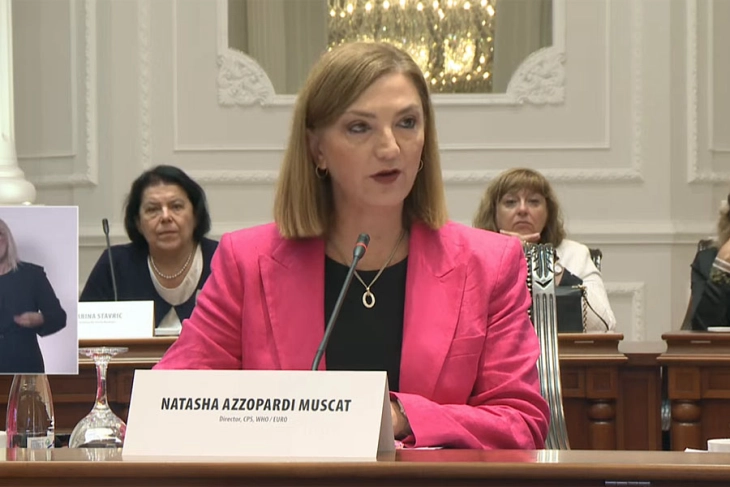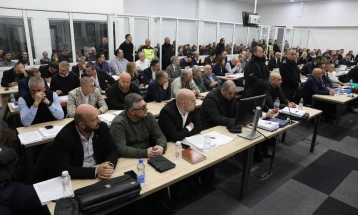WHO: State needs to work on improving people's access to health care without financial hardship
- Despite the recently increased number of publicly financed medicines, catastrophic health spending — or out-of-pocket payments that are large in relation to a household’s capacity to pay for health care — remains a problem in the country, according to a new WHO assessment report on North Macedonia presented Wednesday at a high-level health workshop that convened top government officials and WHO representives in Skopje.

Skopje, 11 September 2024 (MIA) — Despite the recently increased number of publicly financed medicines, catastrophic health spending — or out-of-pocket payments that are large in relation to a household’s capacity to pay for health care — remains a problem in the country, according to a new WHO assessment report on North Macedonia presented Wednesday at a high-level health workshop that convened top government officials and WHO representives in Skopje.
According to the WHO report, which assesses the extent to which citizens experience financial hardship when they use health services, out-of-pocket spending on outpatient medicines in 2018 was 80 percent. This is a 42-percent out-of-pocket payment share of current spending on health in North Macedonia, far above the EU average of 20 percent.
In her remarks at the meeting, WHO Regional Office for Europe's Division of Country Health Polices and Systems director Natasha Azzopardi-Muscat said everyone, regardless of background or circumstances, should have access to health care without experiencing financial hardship.
Azzopardi-Muscat said improving the affordability of outpatient prescribed medicines by regularly updating the Positive List of Prescription Drugs was key to achieving better health coverage.
She said the lack of updates of the positive list of outpatient prescription medicines covered by the Health Insurance Fund in more than a decade had prevented access to many already established, but also new therapies that were now standard in clinical practice across Europe.
The country's challenges in updating the positive list, she said, were lengthy processes as well as insufficient funding for medicines.
"Needs and demands always exceed the resources available to us. But still, there are things we can do," Azzopardi-Muscat said, recommending that the country build its capacity for health technology assessments and review its pricing and reimbursement policies.
She also said small countries usually faced a significant gap in expertise. This was a disadvantage, she noted, when they needed to negotiate with multinational pharmaceutical companies with a lot of expertise, especially when it came to new, expensive drugs.
"This asymmetry often leads to small countries not being able to negotiate effectively," she said.

She pointed out that the lack of timely access to drugs resulted in much more expensive interventions. This should be prevented, she said.
"Too many families across the region are struggling to make ends meet and have to choose between paying for health care or for food and basic needs," Azzopardi-Muscat continued.
"Your country is not the only one facing this situation," she said, pointing to global problems including rising inflation and disruptions to supply chains.
She said it was harder for smaller countries to access medications at affordable prices.
"We at the WHO recognize these challenges and we are here for you. We are here to support you with technical assistance and international cooperation," Azzopardi-Muscat said.

According to WHO representative for North Macedonia Akeem Ali, a systematic review of the Positive List of Prescription Drugs was to follow in the next few months. He said the objective was to improve access to medicines and prevent people from experiencing financial hardship.
"Although progress has been made, we have a lot of work ahead of us," Ali said.
"This journey begins today, but it does not end today. We need to create a systematic and institutionalized process that will be safe, transparent and responsive to the needs of the citizens," he said.
Ali said the WHO would assist the state in tackling this challenge "until the needs of the population are met" and welcomed the health authorities' commitment to updating the list of publicly financed outpatient medications.
Earlier, in their remarks at the workshop, Prime Minister Hristijan Mickoski and Minister of Health Arben Taravari said every citizen deserved access to the medicines they needed for a good life.
They both said the positive list would be expanded, with the next step being to optimize financing for the update. mr/







